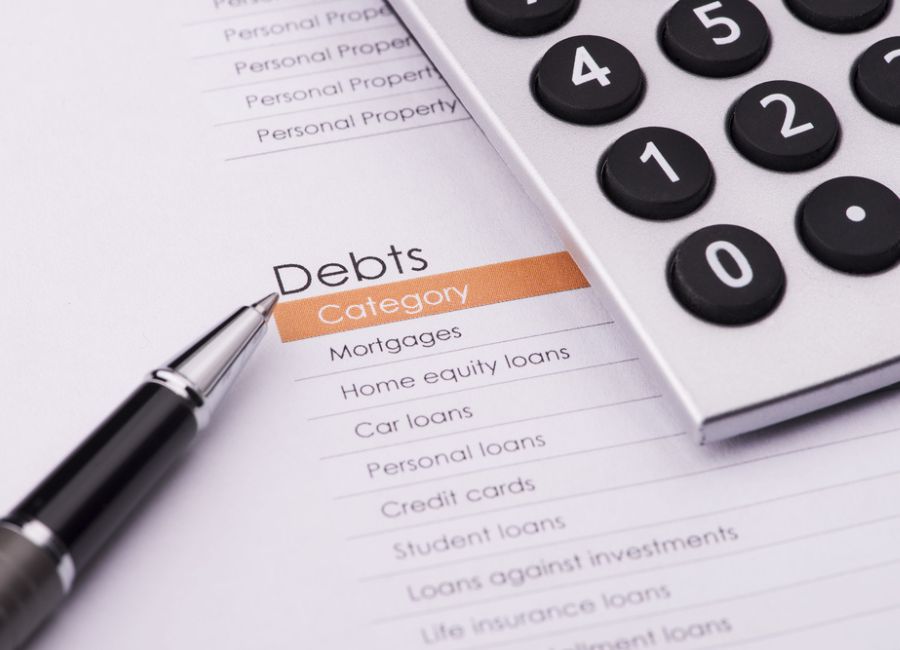On the outside, consolidating debt sounds a good idea. You can combine all of your debts into one large debt and make one monthly payment, as opposed to multiple payments. Less stress? Potentially. While there are some advantages to consolidating debt, there are also some disadvantages. The CGS Team is sharing 5 things you should know about debt consolidation before you actually take the leap. Be mindful of what it entails and the possible ramifications of combining your debts.
5 Things to Know About Consolidating Debt
#1 Consolidating Debt Doesn’t Erase Your Debt
Debt consolidation is the act of combining several unsecured debts (think credit cards, medical bills, personal loans, payday loans, etc.) into one large debt. Instead of having to write checks to 5–10 different lenders every month, you consolidate your debts into one payment, and write one check.
Debt consolidation is typical among people with high unsecured debt. It’s simply a means to help stay organized and ensure the [single] payment is made on time. In no way, shape, or form does debt consolidation erase debt. It simply combines all of your debts into one large debt.
#2 Debt Consolidation Only Works if You Manage Your Money
Since consolidating debt doesn’t actually get rid of your debt, only combines it, it can be easy to think that you are starting fresh. This is not the case, and it’s often the trap that people fall into. Consolidating debt can make your life easier because there is only one payment to worry about and budget for. However, you need to make sure you don’t use the now-available credit on the cards you consolidated.
To ensure debt consolidation works for you, you need to know exactly how to handle your money. Shop around for the best debt consolidation loan rates and monthly payments. Factor that number into your budget. Can you afford it? Does your monthly income cover all of your monthly expenses? If not, focus on getting your monthly expenses down before doing anything. Get yourself on a budget plan to ensure your money is managed properly.
#3 A Debt Consolidation Loan Should be a Benefit
A debt consolidation loan should reduce your interest rate, lower your monthly payment, and be a realistic guide to eliminating debt. In order to make sure a debt consolidation will benefit you, you need to understand what you are currently paying. Add up the monthly minimum amounts of all your debt, take the average of the interest rates, and see where you currently stand.
When shopping around for a debt consolidation loan, have your current debt numbers handy. If the loan raises your minimum payment to more than what you’re currently paying, or doesn’t reduce the average interest rate amount, it’s not going to be a smart move.
#4 You Can Do Your Own Form of Debt Consolidation
According to Debt.org, “If you have a very good credit score (700 or above), the best way to consolidate credit card debt is to apply for a 0% interest balance transfer credit card. The 0% interest is an introductory rate that usually lasts for 6–18 months. All payments made during that time will go toward reducing your balance. When the introductory rate ends, interest rates jump to 13–27% on the remaining balance.”
If you go this route, it’s important to remember a few things:
- Your credit line may not be approved for the entire debt balance you are looking to consolidate
- There are usually fees associated with balance transfers (3-5%)
- Some cards that offer balance transfer deals may have annual fees
- Interest may accrue differently depending on the lender
If you do decide to balance transfer and consolidate debt that way, have a game plan handy to pay the card off before interest kicks in. Read How to Tackle Your Debt Head On for some pointers.
You can also come up with your own debt repayment strategy. Stop using your current cards altogether and only use cash for necessary purchases (where applicable). Use any extra income or savings to pay down your high-interest or low-balance cards first. Don’t stop until all of your debt is paid off.
#5 78% of People Who Consolidate Rack Up Debt Again
We mentioned earlier that most people fall into the trap of consolidating debt, then racking it back up because they felt like they had a clean slate. It’s important you know exactly how many people do this. 78% of people who consolidate their debt end up right back where they started, or worse. Since debt consolidation doesn’t erase your debt, you still have the original debt you consolidated and any extra debt you accrued in the interim.
Proceed with caution. Also, make sure you have a savings or emergency fund in place. If something unexpected comes up immediately after consolidating your debt, you don’t want to use old cards to take on new debt.
Related: CGS Podcast Episode: My Debt Free Story and Biggest Takeaways
As you can see, consolidating debt is a risky process. It can benefit you if you are stern, serious and diligent. On the other hand, it can seriously hurt you if you don’t manage your money, control your spending, or have an emergency savings in place. If you are considering debt consolidation, we strongly urge you to really think through your current situation. Make sure it’s the best move for you financially. Remember, it is not a fresh start!
Have you consolidated debt before? What was your experience with it? Leave a comment below to share any tips or thoughts for other CGS readers!





